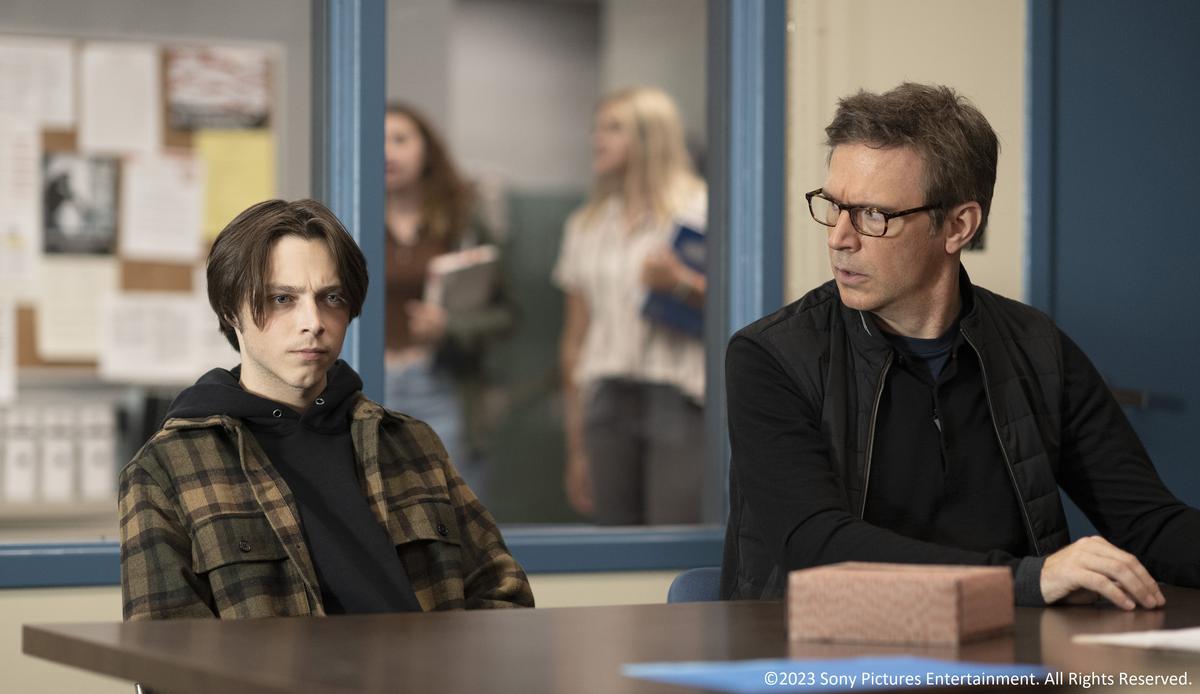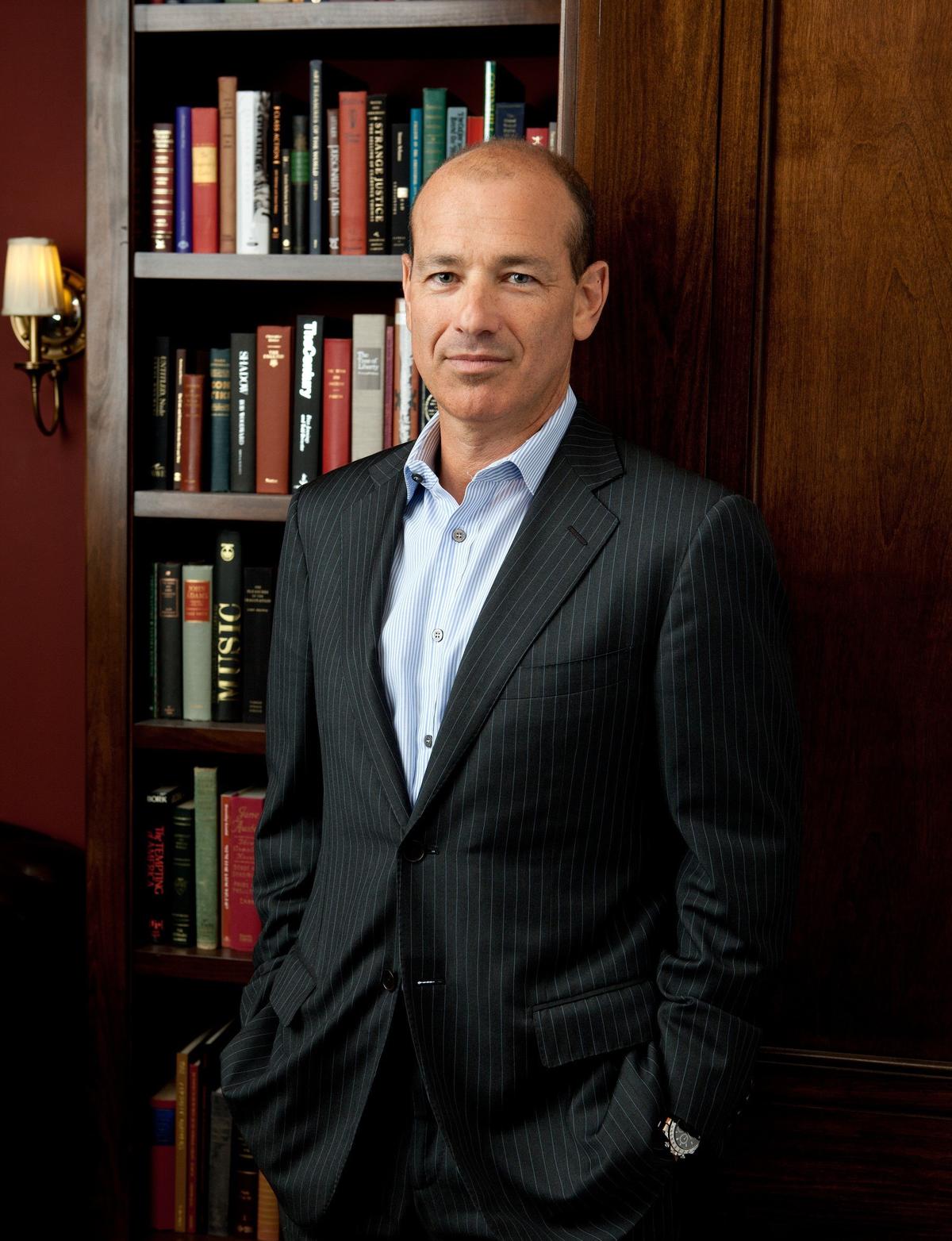[ad_1]
Howard Gordon (left) and the poster of ‘Accused’ (right)
| Photo Credit: Special Arrangement
A father takes his son on a hiking trip reasoning that spending some time together could help their relationship. Sounds lovely? What if I say that this is a plan by the father to kill his son by pushing him off a dangerous cliff? And what if I say that a lot of people might have thought of doing the same if they were in that father’s shoes? This is just one of the many mind-boggling ideas that are explored in Accused, the American adaptation of the hit BBC anthology series by Jimmy McGovern, which shows how an ordinary person gets caught up in extraordinary circumstances.
Each of the episodes in the anthology begins in a courtroom with the defendant and narrates their story non-linearly. Howard Gordon, the showrunner of the adaptation, which is streaming in India on Sony LIV, recounts the moment he was watching an episode called ‘Tracie’s Story’ from the original series and how it birthed the spark to adapt the series for American audiences. What compelled Howard the most was how the narrative made the viewers put themselves in the complicated situations that these characters find themselves in. “The world we are living in is binary; there’s right and wrong, and words are weaponised. This show was a great opportunity to slow down and discover that this world is complicated and that there is no right or wrong,” says Gordon, adding that it is that dramatic nature of the complexity that keeps people invested in the question of what they would do if it happened to them.

A still from ‘Accused’
| Photo Credit:
Elly Dassas
Thanks to the format, there is excitement at the prospect of meeting new people in new situations every week, says Howard, adding that the growing popularity of the anthology format in the U.S. helped in mounting this project. “People from the network started watching these new anthology shows, and hence they also felt the spark. And each of them added something extra to this show.”
Howard isn’t new to adaptations — his hit Showtime thriller series Homeland was an adaptation of the Israeli series Prisoners of War. He also recounts having a great time in India with actor Anil Kapoor when he produced the Indian adaptation of his Fox crime thriller series 24. However, the current post-streaming world has given enough freedom for creators to take an inspiring story from elsewhere and root it in their local milieu. For instance, we are now seeing a Korean adaptation of a Spanish series like Money Heist. But how does one decide which titles can or cannot work as adaptations? Howard believes that stories are universal because people share more similarities than dissimilarities and that the opening up of global media has only reassured him of that belief. “The stories we are telling in Accused are like that. Everyone knows what it is to be a father, mother, son, brother, wife, etc. And we are all going to die someday.” Howard adds that adapting a title like Accused offered the chance to hold a lens over America’s diversity as well. “We have a story that is run by an all-Native American cast and crew. Hence these stories also help us look at these sub-cultures within monocultural societies.
“This is also an opportunity for me to shine a light on people we may not otherwise meet,” says Howard, citing the character of Ava from the episode ‘Ava’s Story’. Ava, played by Stephanie Nogueras, is a deaf surrogate mother who makes a strong case for more empathy from parents in raising a child with hearing impairment or other special needs.

Howard Gordon
| Photo Credit:
Special Arrangement
Episodes of Accused touch upon several pivotal topics like sexual abuse, gun violence, racism, transphobia, mental health, and so on. Telling stories with such sensitive themes isn’t a cakewalk, and Howard says he felt that pressure as well. He calls himself “a little provocative” and says that he does like to make people feel uncomfortable. “Because that’s where it gets interesting. Some of the things that we did on the show did scare people and I had to do a lot of convincing. They said, ‘we can’t do that, but you can.’” Many people had asked Howard to not touch topics with polarising opinions, “But I feel that to tell a story, I have to love every character, even the unredeemable ones,” he says.
A very impressive aspect of the form of Accused is how each of the episodes, despite starting in a courtroom and exploring the story non-linearly from the point of view of the defendant, has a distinct structure and they all end in a unique fashion. “I didn’t want every episode to be like the Michael Chiklis one (first episode titled ‘Scott’s Story’), where you feel like jumping out of a window in the end. Some of the episodes are actually funny and so we did experiment with tone,” says Gordon.
“We were aware of diversifying the viewing experience. They either don’t know what to expect or they know what to expect but are not quite sure of it.” The unique viewer experience it provides is Accused’s major selling point, and Howard hopes that the show makes the audience “pause for a second and think a bit differently than they did when they started watching it.”
[ad_2]
Source link


